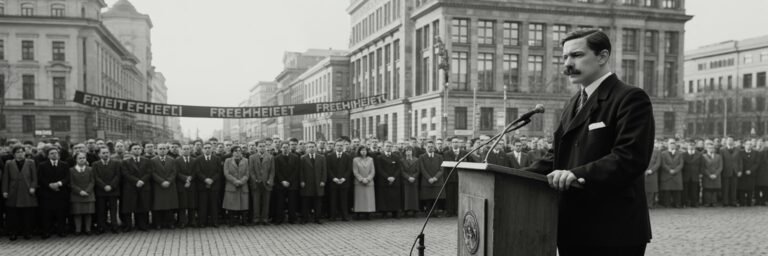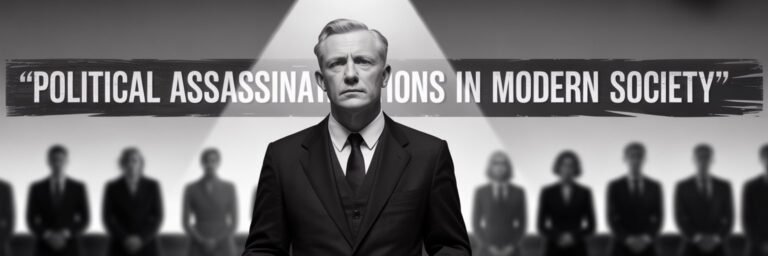INTRODUCTION
The hushed murmurings of a crowd, a sudden pop, eerie silence, and then chaos— political assassinations have echoed through history, leaving indelible fingerprints on the course of nations. From Julius Caesar’s murder in 44 BC to the shocking assassination of Louis Mountbatten in 1979, these chilling acts represent shifting paradigms in power trajectories, socio-political contexts, and ideological perspectives. They amplify voices of radical dissent, heralding resistance or clamoring for change. The haunting specter of political assassinations remains important today, defying time and challenging historians, scholars, and policymakers to understand their enduring legacy.
HISTORICAL BACKGROUND
Political assassinations are as old as politics itself. The term ‘assassination’ is drawn from Hashshashin, a medieval sect known for their political killings. The assassination of Julius Caesar, the brutal stabbing of archduke Franz Ferdinand, the shocking murder of Louis Mountbatten – bear testimony to the historied lineage of political assassinations.
Julius Caesar, ‘dictator perpetuo’ of Rome, was assassinated on the ides of March, 44 BC, by senators who deemed him a threat to republican liberties. The stabbing of the Archduke Franz Ferdinand on June 28, 1914, by Bosnian nationalist Gavrilo Princip, sparked not just a succession crisis but the Great War. Fast forward to the 20th century, when on August 27, 1979, an IRA (Irish Republican Army) bomb claimed the life of Louis Mountbatten, irrevocably transforming Irish-British relations. Political assassinations act as turning points, dynamically altering the trajectory of nations, ideologies, and human lives.
THEORIES AND INTERPRETATIONS
Political assassinations manifest ideologies and political dynamics otherwise suppressed. As Barry Weingast writes in his work, “The Political Foundations of Democracy and the Rule of Law”, political killing is a “form of signaling”, a mode for the dissenter to express disapproval of the status quo. Assassinations, hence, are not random acts of violence but deliberate targeted performances, seeking to catalyze socio-political metamorphosis.
Theories of political assassinations also span the scope of international relations – Realism perceives assassinations as power balancing acts while Constructivism argues that they foster shifts in collective identities and norms.
MYSTERIES AND CONTROVERSIES
Political assassinations are shrouded in mystery, arousing controversies that question mainstream narratives. JFK’s assassination, still steeped in controversy, spawned myriad conspiracy theories. Gavrilo Princip’s exact motives, too, remain enigmatic. Was he just an anarchist driven by nationalist fervor or was there more to the story? The controversy surrounding the Lincoln assassination, with scholars debating Mary Surratt’s involvement, extends to this day.
SYMBOLISM AND CULTURAL SIGNIFICANCE
Beyond the shock and horror, political assassinations carry profound symbolism. They forcefully articulate calls for change, express dissent, and redefine power dynamics. The death of Caesar marks, symbolically, the end of the Roman Republic and the rise of the Roman Empire. Assassinations also influence cultural dynamics, entering the zeitgeist through arts, literature, film, and music, acting as powerful reminders of history’s turning points.
MODERN INVESTIGATIONS
Modern investigations into political assassinations provide illuminating insights. Forensic advancements, coupled with documentary evidence and political sciences, aspire to provide comprehensive narratives. JFK’s assassination, arguably the most controversial political murder in US history, has been subjected to rigorous reinvestigations. Still, the quest for truth continues, as researchers tirelessly scrutinize past evidences, igniting debates and fueling new theories. The presence of political assassinations in the digital age brings forth new challenges, like discerning ideological radicalization propelling such acts.
LEGACY AND CONCLUSION
Political assassinations are historical milestones, markers of change, and catalysts for collective memories. They help shape nations’ historical consciousness and collective identities. Assassinations force societies to confront contentious aspects of their past, fostering critical dialogue and engagement. They raise challenging questions about ideologies, power, governance, dissent and violence that remain relevant today.
The long shadows of political assassinations continue to shape our contemporary political landscape, raising new questions while simultaneously echoing the dilemmas of the past. As we navigate volatile global politics today, understanding political assassinations, their impact, symbolism, and legacy, remains significant. It begets the necessity to establish democratic spaces that combat suppression and encourages constructive conflict resolution. Thus, political assassinations continue to matter today, not only as milestones etched in the annals of history but as reminders of the ceaseless dynamics of power, voice, and resistance.
Through their grisly resonance, we are compelled to examine the roots of dissent, understand the narratives that drive such extremism and ultimately learn better ways of addressing contention within our societies. A confrontation with the ghosts of political assassinations teaches us that the politics of violence and disruption only serve to amplify division, but the politics of understanding and dialogue underscore humanism, fostering harmony and progress in the long run.






